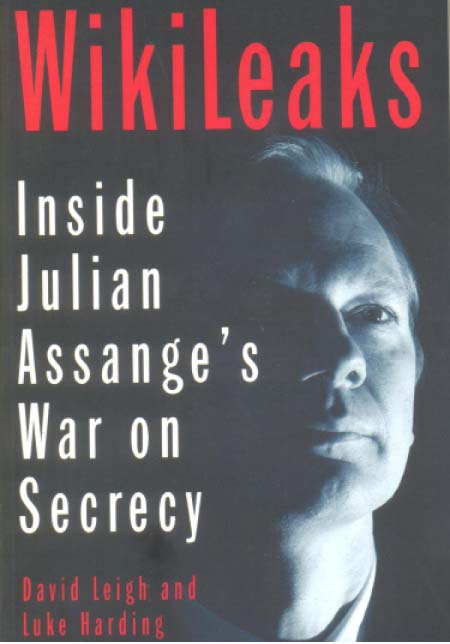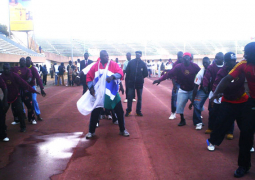
It was after midnight and Julian Assange hadn’t eaten. Sitting in a
A strange meal for a man who lives in the shadows, but then Assange is also a man who likes to stand out.
As well as buying the man’s supper, Guardian reporter David Leigh was keeping the restless, chameleonic Australian on board.
After all he was the man with access to over 250,000 classified
The Guardian, left trailing in 2010 by the rival Daily Telegraph’s litany of scoops on politicians’ expenses, wanted this one badly. When a promised feature film is made about this affair (the rights were signed up by DreamWorks just last week) the casting directors are going to have their work cut out.
For one of the most astonishing stories of the decade will require actors with egos comparable to those of the key players in this drama, including some of the journalists involved.
Central, of course, will be Assange, the 39-year-old snow-haired Australian hacker, publisher and leaker extraordinaire with a taste for the theatrical.
Now facing extradition from the
WikiLeaks: Inside Julian Assange’s War on Secrecy is the account of what happened from the perspective of the Guardian. The other newspapers involved were Der Spiegel and The New York Times.
In unravelling the murky details, the book has also provided a rip-roaring narrative of secrets, tantrums, technological wizardry, personal betrayal and vengeance. At its heart is the secrecy surrounding seismic events inside
A brief outline of what we know: in July, October and November last year WikiLeaks, set up by Assange and others in 2006, laid the classified American government documents before a shocked world.
Of course, there was no paper trail but an immaculately choreographed publication on WikiLeaks’ own website and in the three printed publications.
Some scenes would fold neatly inside any modern spy thriller one cares to think of: Assange scrawling a secret password on a napkin at a
There was also the building of a makeshift computer programme to allow journalists to use keywords in seraching documents as well as an interactive map, originally designed for the Glastonbury music festival, which showed not where the food stands were but where, and how many, people had been killed by roadside bombs.
Last November, in the Guardian’s
The impact of the release was profound, the disclosures heaped opprobrium on the
The American response was immediate and devastating; the bullying of all firms involved in directly or indirectly supporting or hosting WikiLeaks and the start of a drawn- out, often vindictive effort to punish Assange -- in any possible way.
The classified pages ranged from the downright silly (snooty descriptions of various foreign leaders and their families) to the most chilling (figures proving the number of civilian deaths in
The cables exposed the breadth of US operations and revealed a huge diplomatic appetite for gossip, personal tittle tattle and updates on what governments -- including
American politicians declared Assange Public Enemy No 1 while others even called for him to be assassinated.
Though Assange had been the facilitator in releasing the pages, it was a 22-year-old
Manning, a gay soldier with deep reservations about
The soldier detailed how he would sit lip-syncing to songs by Lady Gaga as he copied on to CDs secret details including those relating to the killing by US forces of three Reuters journalists.
Lamo turned Manning in to the FBI. The soldier was arrested and is now in solitary confinement in the
Manning’s treatment at the
He’s locked up for 23 hours a day, has to sleep naked and is repeatedly woken after short periods of rest. An official in secretary of state Hillary Clinton’s department quit last week after he voiced stern criticism of the Pentagon.
Assange endured a torrid childhood, living with his mother in a hippy colony and becoming immersed in computers at an early age. Most who meet him see him as aloof, charismatic and passionate, needful of attention and prone to jealous rages when things go awry.
Relations with the various newspapers involved in the WikiLeaks publication were often difficult, with Assange disappearing from contact and threatening to cut them out of the loop.
“Where’s the respect, where’s the respect?” Assange shouted at New York Times editor Bill Keller in one telephone call.
In December last year, Assange was arrested in London, and a High Court ruling in February means his extradition to Sweden to face disputed rape charges is likely, unless an appeal succeeds.
Meanwhile, Assange himself has since fallen out with the Guardian, angry at the paper’s reporting of the sexual allegations against him and the share of income generated by the follow-up of the story.
Available at Timbooktoo Tel:4494345
Read Other Articles In Article (Archive)



